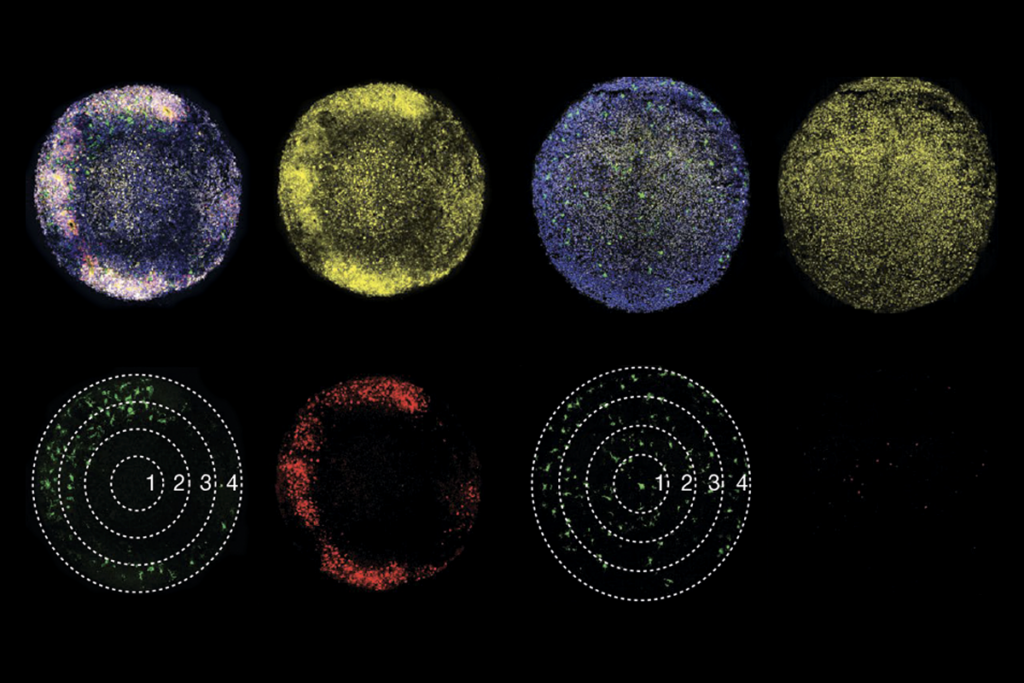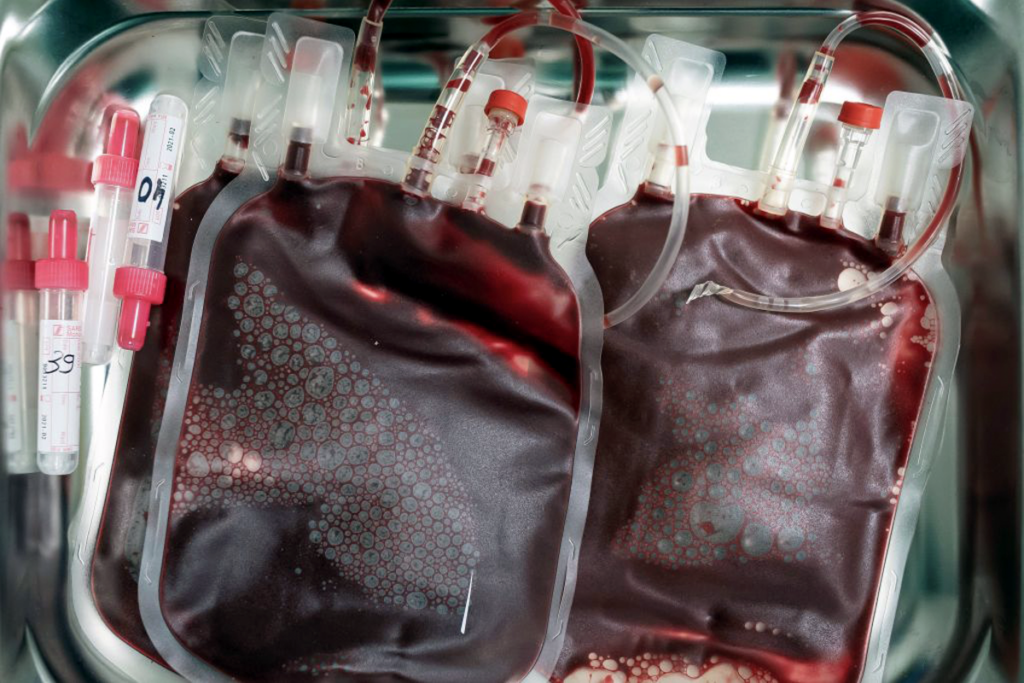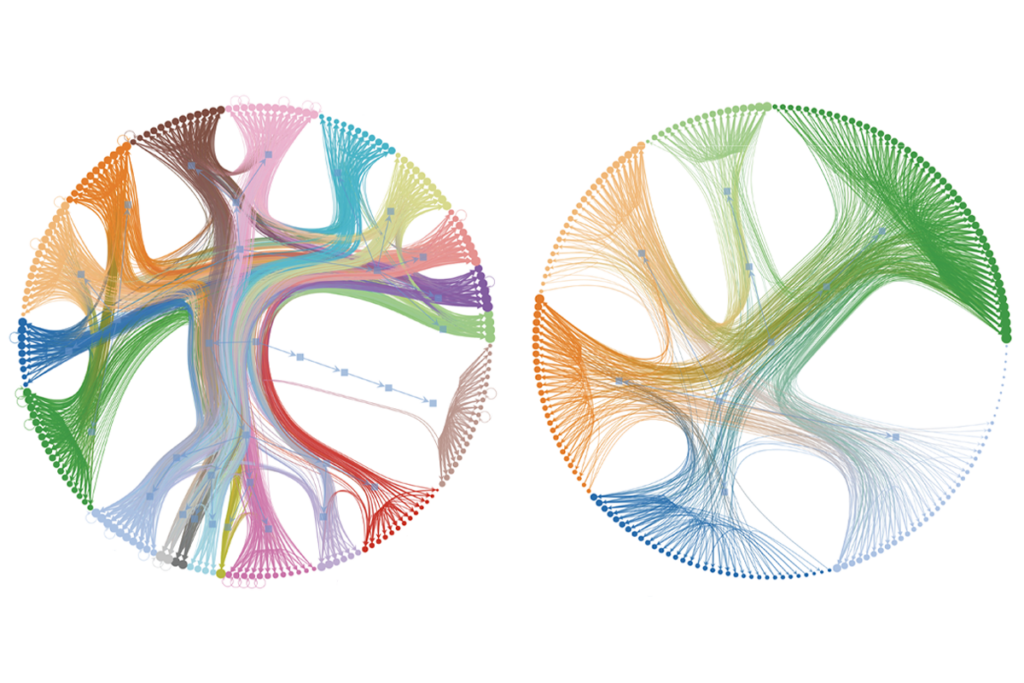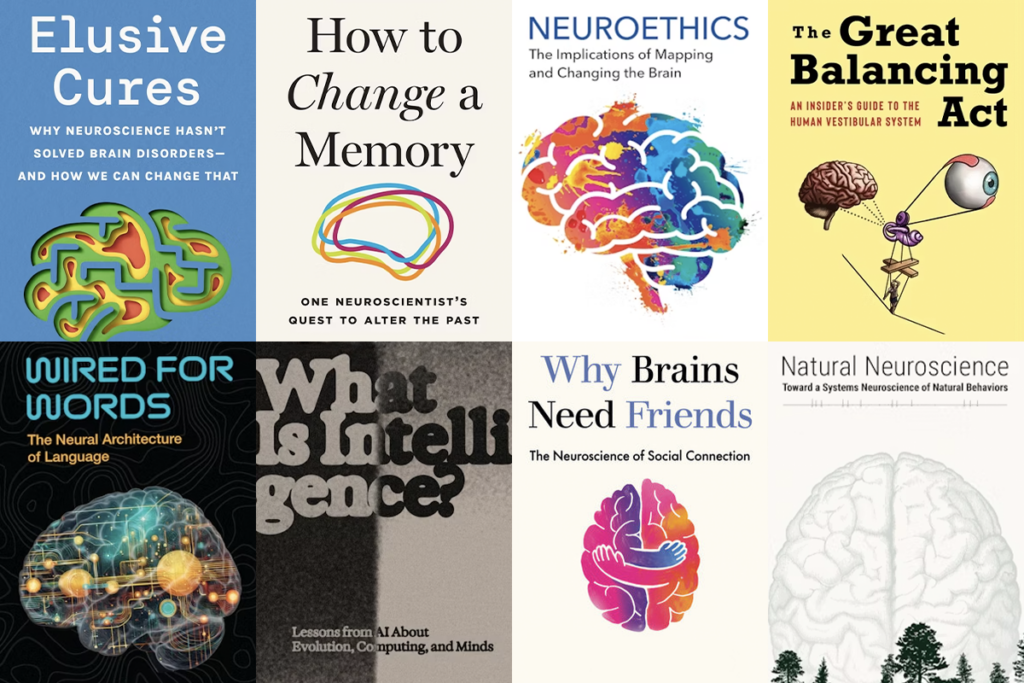Research roundup
- Antidepressants can alleviate aspects of autism, particularly repetitive behaviors, and seem to work better in adults than in children or adolescents, according to a review of studies. Journal of Psychiatry and Neuroscience
- Common genetic variation in the gene RBFOX1 is associated with a range of psychiatric conditions, and rare copy number variants of the gene are linked to autism and schizophrenia. Molecular Psychiatry
- Activating metabotropic glutamate receptors in mice missing the CDKL5 gene — a model of the autism-linked condition CDKL5 deficiency disorder — improved both brain and behavioral measures. Neuropsychopharmacology
- A mouse model of one person’s PAX5 gene mutations shows autism-like behaviors and impaired immune functions. Spectrum reported on PAX5 syndrome earlier this year. Journal of Experimental Medicine
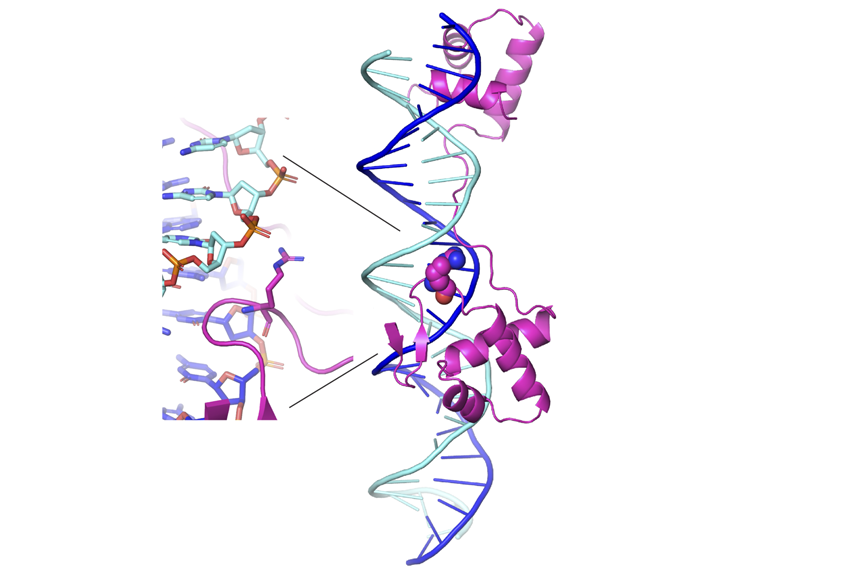 Mission control: The PAX5 protein interacts with DNA to regulate genes.
Mission control: The PAX5 protein interacts with DNA to regulate genes. - Language ability can affect diagnostic assessment of individual autism traits. Frontiers in Psychology
- Autism diagnoses occur earlier in a child’s life in high-income countries than in low- or middle-income countries, but the differences are not statistically significant. Clinical Epidemiology
- Children with intellectual disability who carry inherited gene variants have an elevated chance of also having neuropsychiatric diagnoses. The Lancet Psychiatry
- Both versions of a measure called the Brief Observation of Social Communication Change appear to provide valuable information over time, relating to development or response to treatment. Journal of Autism and Developmental Disorders
- Some gene pathways have different methylation patterns in autistic people, which has implications for understanding the etiology of autism, according to a review article. Molecular Diagnosis & Therapy
- One-third of adolescents who were born preterm have autism traits and also have diminished white matter, as measured by magnetic resonance imaging. Pediatric Neurology
- Research that relies on human stem cells may be compromised by mutations, according to a recent investigation. The Scientist
Science and society
- University of Pittsburgh researcher Jana Iverson, who studies how motor skills affect the development of communication and language, is joining the faculty of Boston University in Massachusetts. Boston University
- Families with autistic children report questionable and concerning experiences with applied behavior analysis as delivered by therapy centers funded by private equity firms. STAT
- Autistic people often practice social scenarios and may relate to the rigorous role-playing seen in a new reality television show called “The Rehearsal,” writes psychologist Tamara May. The Conversation
- In a new podcast called “Nature’s Take,” four Nature staffers discuss how the use of preprints is affecting science for better and worse. Nature
